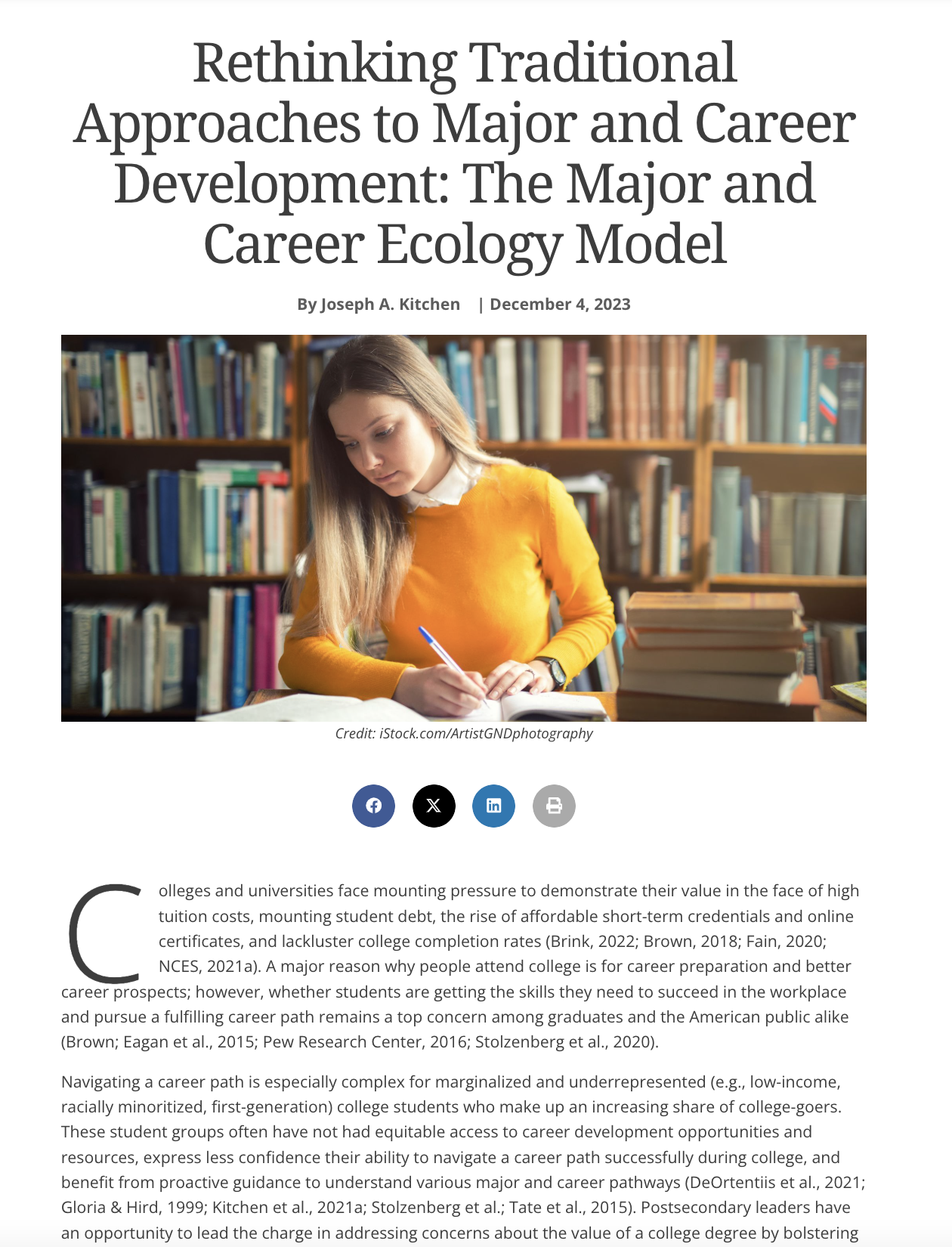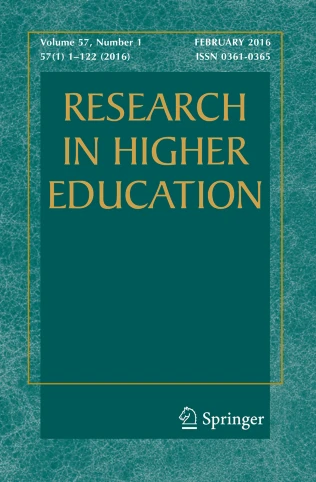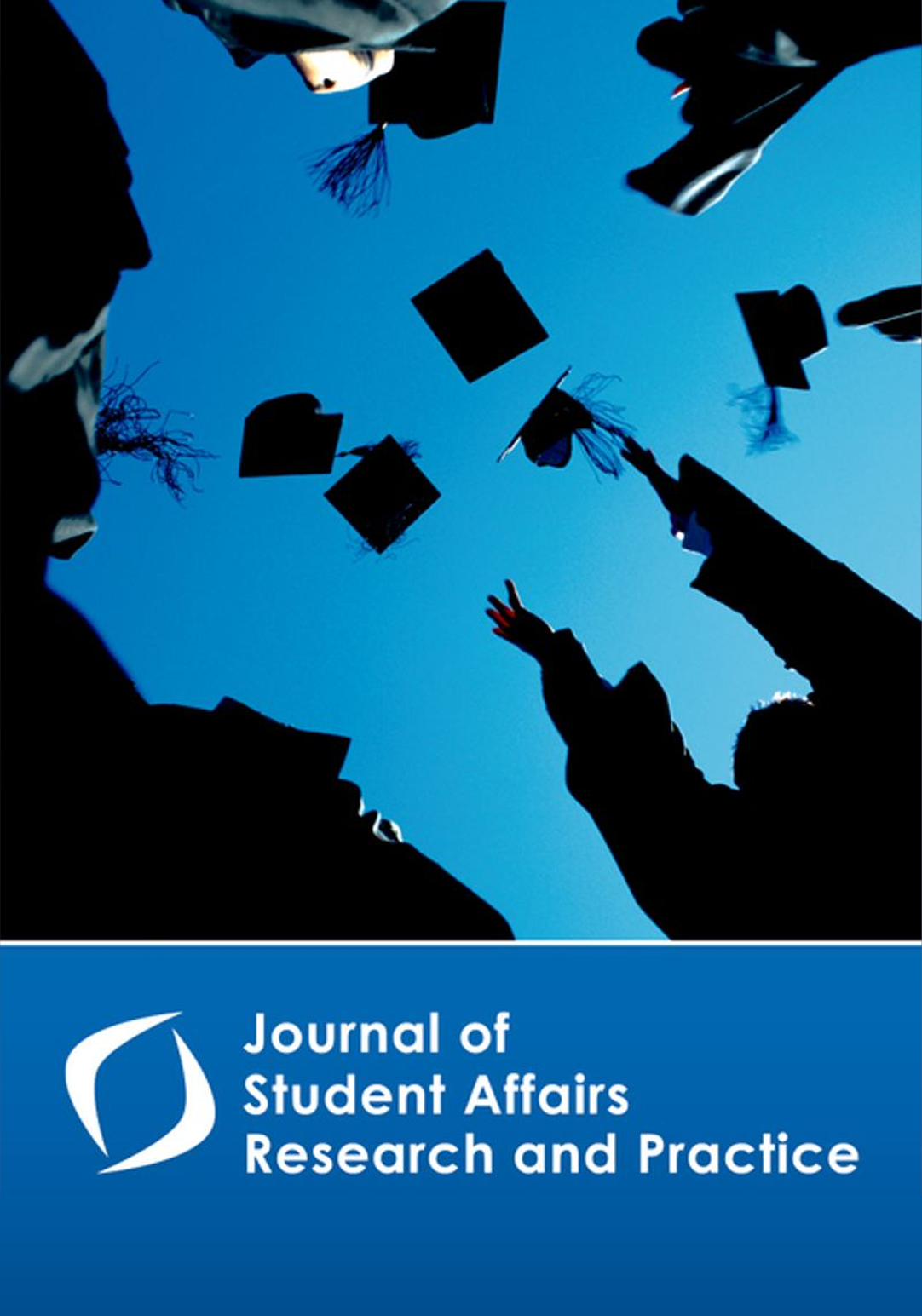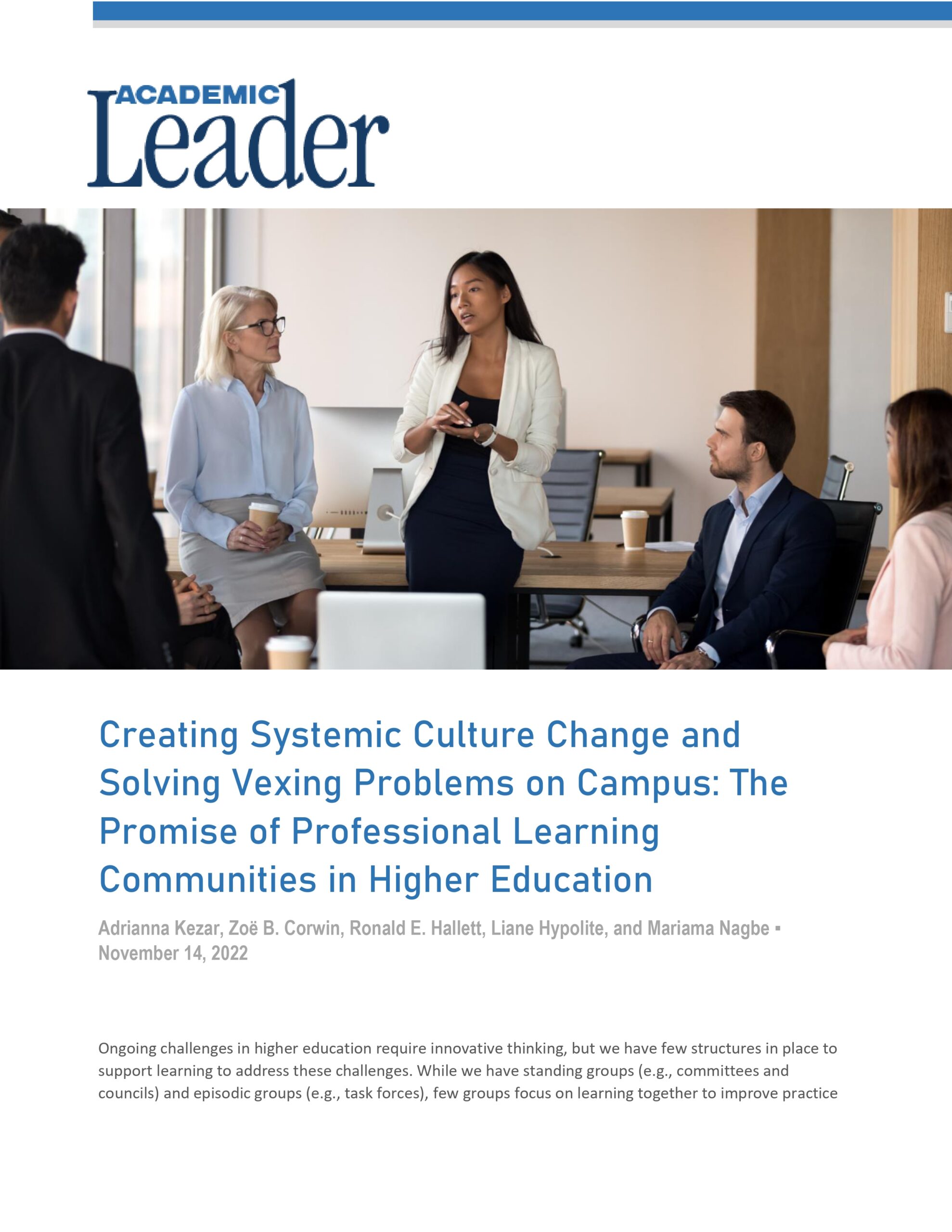Archives: Articles/Briefs
Guidance for educators seeking to build validating relationships that promote college success for low-income students.
An ecological approach to creating validating support for low-income, racially minoritized, and first-generation college students.
Rethinking traditional approaches to major and career development: The major and career ecology model.
The article addresses challenges in higher education—such as rising costs, student debt, and concerns about career readiness—and their impact on perceptions of a college degree’s value and relevance. It presents the Major and Career Ecology Model as a novel approach that re-imagines how academic programs, career development activities, and student supports are implemented to better prepare students for their future careers.
The relationship between low-income college students’ time use and well-being: A mixed methods exploration.
The article examines how first-year, low-income students allocate their time and the subsequent effects on their well-being. Using a mixed-methods approach, the study finds that structured routines and meaningful reflection positively influence well-being, while academic and work commitments, especially among first-generation students, can detract from it.
Exploring compassion fatigue and community care in student affairs.
This study examines how working in student affairs programs serving at-promise students can contribute to compassion fatigue among staff. It highlights how a supportive culture of care and mentorship within the program helps buffer staff from stress, despite challenges related to workload, institutional positioning, and high staff turnover.
The potential of and mechanisms for a hub of innovation on campus to support changes for low-income, first generation, and racially minoritized college students
Developing low-income college students’ sense of belonging: The role of validation.
Creating systemic culture change and solving vexing problems on campus: The promise of professional learning communities in higher education.
Ongoing challenges in higher education require innovative thinking, but we have few structures in place to support learning to address these challenges. While we have standing groups (e.g., committees and councils) and episodic groups (e.g., task forces), few groups focus on learning together to improve practice across the campus. One exception is faculty learning communities, which are becoming more common as a way for instructors to come together and read about a pedagogical strategy, such as active learning, and work collectively to alter their approach to teaching.



